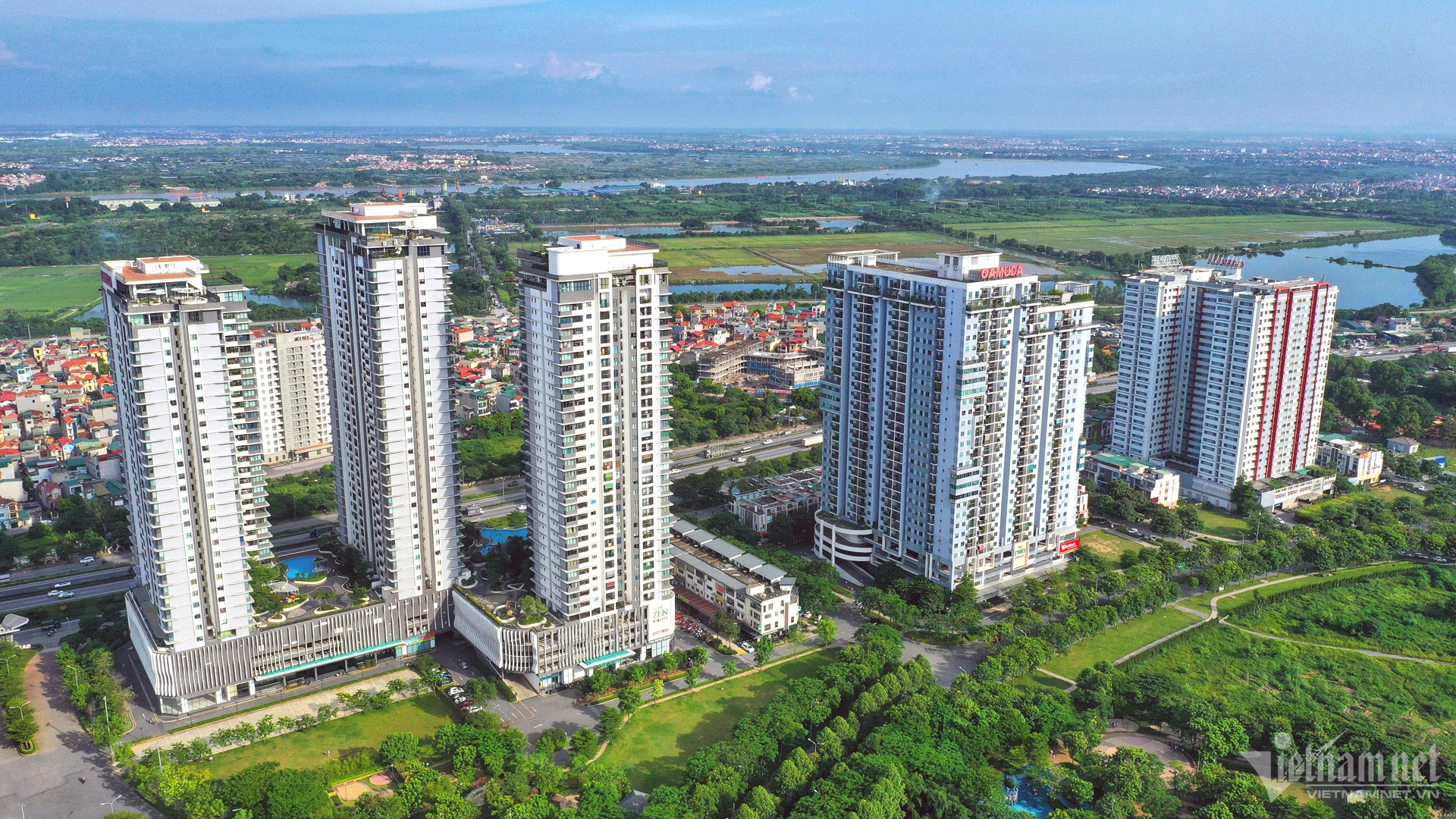A couple in Ha Dong, Hanoi, Ms. Thu Hien and her husband are planning to purchase a home this year. They are exploring home loan packages from multiple banks, attracted by the appealing interest rates starting at just 5%/year.
Ms. Hien shared that BIDV is currently offering interest rates for home loans to customers in Hanoi and HCMC at a minimum of 5%/year for the first 6 months from the initial disbursement, with a minimum loan term of 36 months. The interest rate is 5.5% for the first 12 months from the initial disbursement, with a minimum loan term of 60 months.
Another bank, Sacombank, is currently offering fixed interest rates of 6.5%/year for 6 months, 7%/year fixed for 12 months, and 8%/year fixed for 24 months for loans that support living expenses, including home purchases.
“My husband and I think the current preferential interest rates are quite low. However, as first-time homebuyers, we are concerned about what to look out for when taking out a bank loan since we lack experience. Therefore, we need to do more thorough research before making a decision,” Ms. Hien said.
What should people like Ms. Hien and her husband, who want to take out a bank loan to purchase a home, keep in mind to take advantage of these preferential interest rates while avoiding the “trap” of floating interest rates after the preferential period and ensuring that it fits their financial capabilities?
 According to experts, it is recommended to use financial leverage of around 50% of the property’s value; borrowing up to 70% can be quite risky. Photo: Hoang Ha |
In an interview with a reporter, Mr. Vu Cuong Quyet, General Director of Dat Xanh Mien Bac, stated that 6-9 months ago, homebuyers had to pay interest rates of around 10-10.5%. However, in the past 2-3 months, several banks have reduced interest rates for home loans to 5.5-6%.
Mr. Quyet believes that this is a great opportunity for people who are looking to take out loans to buy homes, as several banks are offering preferential interest rates that are fixed for 12-24 months. He cautions homebuyers to consider their income carefully after the preferential interest rate period expires. After that period, the interest rate will increase by a margin of 2-3% or more, depending on the bank.
“Interest rates are subject to market mechanisms, making it difficult to predict what they will be in the next 2-3 years. They could even rise above 10%, which would be very risky. Thus, it is crucial to carefully consider your income and how much you can afford to pay after 2-3 years to avoid a budget deficit. And keep in mind that some banks impose penalties of 1-1.5% or even 2% for early loan repayment,” Mr. Quyet said.
Additionally, the head of Dat Xanh Mien Bac recommends opting for a loan with a longer term when taking out a mortgage for the first time, ideally 20-25 years.
“It is advisable to choose reputable, large, state-owned banks for your loan because they tend to have more stable interest rate fluctuations. While these banks typically have stricter lending requirements, this can help reduce risk for homebuyers,” Mr. Quyet further advises.
He also emphasizes that it is prudent to limit financial leverage to 50% of the property’s value; using up to 70% leverage when purchasing a home can lead to significant risk.
Economic expert Nguyen Tri Hieu also points out that banks always offer very low preferential interest rates to start. Some banks even advertise 0% interest rates, but these only apply for the first few months. After the preferential period, interest rates will rise.
Therefore, Mr. Hieu urges homebuyers to inquire about the basis for interest rate calculation and any interest rate adjustments that may occur within periods of 3 months, 6 months, or 1 year when taking out a home loan.
“If you have funds for a down payment, find out what the prepayment fee is. And if you happen to miss a payment deadline, what is the penalty interest? These are all basic issues that anyone considering a home loan should consider,” Mr. Hieu said.
The expert also advises that taking out a loan with a longer term is beneficial as it spreads out the principal over time, reducing the monthly payments to the bank.
“It is considered safe to allocate no more than 50-60% of your monthly income towards loan repayments. However, if that ratio reaches 70-80%, it becomes quite risky, as you would have to commit too much of your income to debt repayment,” Mr. Hieu cautions.
Nguyen Le














